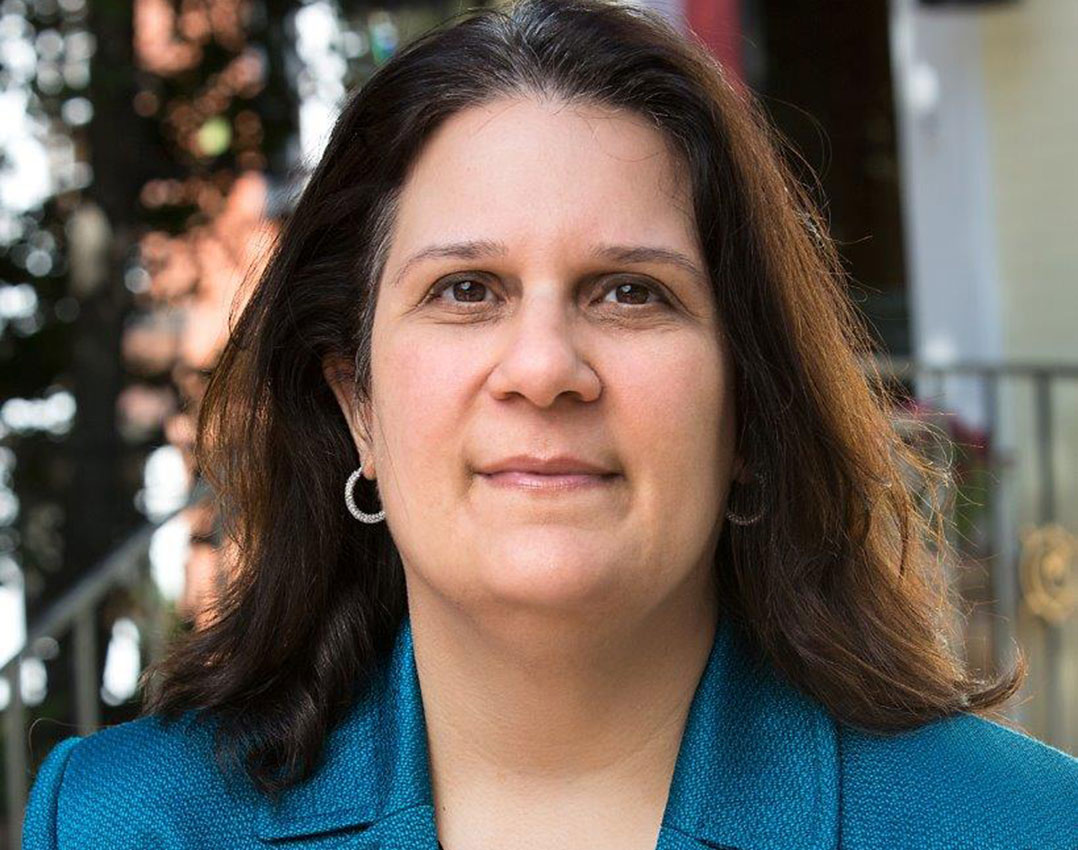In 2006, after seven years at some of the world’s largest law firms, Yiota Souras, LAW ’99, joined the National Center for Missing and Exploited Children, where she serves as general counsel. She spoke with FORDHAM magazine about making the transition to advocacy law. And she shared details of her recent appearance in I Am Jane Doe, a new documentary film in which she discusses the center’s efforts to prevent online sex trafficking via the website Backpage.com.
What drew you into a career in law?
Among other things, the ability to advocate analytically and creatively for a solution to compelling issues—and the opportunity to channel conflicting opinions and facts into a singular story. Like just about everyone else who goes to law school, the thought that I might have the opportunity to facilitate access to justice for those in need was a tremendous draw.
What made you decide to work for an advocacy organization?
My seven years working as a law firm associate were invaluable. I learned the basics of litigation, white-collar investigations, corporate governance, and intellectual property issues; how to structure and build a case and legal defenses; and productive ways to apply a team approach to large-scale issues and project manage solutions in a legal context.
In my sixth year as an associate at Orrick Herrington, I became very involved in the legal defense of Guantanamo Bay detainees. I was fortunate to be at a firm that allowed me to devote significant resources to this pro bono project. The experience was a revelation to me. It exposed me to lawyers who were applying their legal skills to socially meaningful issues while wielding their skills to create and develop new law and policies. This was eye-opening, and I knew from then on that this was the direction I needed to go within my legal career.
What are your focus areas at the National Center for Missing and Exploited Children? How do you spend your time as general counsel?
Seventy percent of the time, I could be GC of any 350-person company dealing with typical contract, employee, trademark, and compliance issues. But the other 30 percent of my time I get to tackle issues very unique to the center’s mission to help find missing children, reduce child sexual exploitation, and prevent child victimization. This work may involve federal legislative efforts, coordinating with corporate and technology partners, or working internally to anticipate and prevent new threats to child safety, especially online. Last year, the center received over 8 million reports of child sexual exploitation (pornography, enticement, sextortion, sex trafficking, etc.), so the challenges are enormous.
You graduated from St. Catherine’s, an all-girls high school in Richmond, Virginia. And your work largely defends girls. Do you see a link between your background and work?
Most victims of child sex trafficking are girls, but boys and transgender children are definitely victimized as well. I think when you go to an all-girls school for 13 years, you’re naturally conditioned to empathize strongly with girls who are horribly victimized and have been denied the sort of childhood that we were able to enjoy. That being said, the deepest influence my experience at St. Catherine’s had on my current work was the emphasis on finding a role in society where your work benefits others. This influence was echoed years later at Fordham Law School, which makes service to others a core part of the education experience.
How has your work against Backpage.com influenced your view of the pros and cons of “communications freedom” enabled by the consumer internet?
It’s essential to understand that the civil and criminal legal challenges against Backpage have absolutely nothing to do with internet freedoms or freedom of speech. The invocations of these freedoms are simply red herrings designed to distract from the starker factual landscape of these cases—namely, that the trafficking and sexual abuse of children is always illegal. There are no freedoms that can immunize someone who aids and abets or otherwise participates in a venture that traffics children for sex.
Many lawyers in I Am Jane Doe say parents of trafficked girls are what got the legal momentum rolling against Backpage.com. Do you agree?
I think this is definitely true. The mothers in this film are indicative of so many parents NCMEC works with who never stop looking for and supporting their children when they go missing or are exploited. I think this is reflective of NCMEC’s origin. We were founded by John and Revé Walsh in 1984, after the abduction and murder of their 6-year-old son Adam fueled their wish to ensure that no one other parent searching for their child would do so without the support and help of a nonprofit dedicated to these efforts. Social movements like these efforts around child protection are often most powerfully inspired by human ties, including the love parents have for their children.
What is your hoped-for outcome with the release of I Am Jane Doe?
I think we’re already seeing what I had hoped would be the impact of this amazing film: heightened public awareness and dialogue; increased attention from Congress on the problems and potential solutions highlighted by the film; and new dialogue around how as a society we can provide additional, focused support services to survivors of child sex trafficking and their families.
Interview conducted, edited, and condensed by Jane Hodges.

